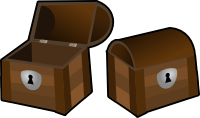Associations to the word «Trunk»
Noun
- Prohibition
- Bark
- Tusk
- Lid
- Tree
- Si
- Woodpecker
- Bough
- Suitcase
- Elephant
- Luggage
- Foliage
- Limb
- Diameter
- Circumference
- Twig
- Tapping
- Road
- Traffic
- Motorway
- Bypass
- Interchange
- Sap
- Baggage
- Lichen
- Beak
- Steamer
- Beech
- Extremity
- Branch
- Buttress
- Hose
- Stump
- Attic
- Evergreen
- Restriction
- Saratoga
- Ganglion
- Canopy
- Fern
- Wardrobe
- Prefix
- Yarmouth
- Junction
- Leaning
- Fir
- Packing
- Moss
- Pine
- Eucalyptus
- Vertebra
- Aspen
- M1
- Elm
- Vine
- Root
- Slip
- Shrub
- Redwood
- Cypress
- Artery
- Grille
- Pacific
- Tangle
Adjective
Adverb
Pictures for the word «Trunk»
Wiktionary
TRUNK, noun. (heading) (biological) Part of a body.
TRUNK, noun. The (usually single) upright part of a tree, between the roots and the branches: the tree trunk.
TRUNK, noun. The torso.
TRUNK, noun. The extended and articulated nose or nasal organ of an elephant.
TRUNK, noun. The proboscis of an insect.
TRUNK, noun. (heading) A container.
TRUNK, noun. A large suitcase, usually requiring two persons to lift and with a hinged lid.
TRUNK, noun. A box or chest usually covered with leather, metal, or cloth, or sometimes made of leather, hide, or metal, for holding or transporting clothes or other goods.
TRUNK, noun. (US) (Canada) (automotive) The luggage storage compartment of a sedan/saloon style car.
TRUNK, noun. (heading) A channel for flow of some kind.
TRUNK, noun. (US) (telecommunications) A circuit between telephone switchboards or other switching equipment.
TRUNK, noun. A chute or conduit, or a watertight shaft connecting two or more decks.
TRUNK, noun. A long, large box, pipe, or conductor, made of plank or metal plates, for various uses, as for conveying air to a mine or to a furnace, water to a mill, grain to an elevator, etc.
TRUNK, noun. (archaic) A long tube through which pellets of clay, pas, etc., are driven by the force of the breath.
TRUNK, noun. (mining) A flume or sluice in which ores are separated from the slimes in which they are contained.
TRUNK, noun. (software engineering, jargon) In software projects under source control: the most current source tree, from which the latest unstable builds (so-called "trunk builds") are compiled.
TRUNK, noun. The main line or body of anything.
TRUNK, noun. (transport) A main line in a river, canal, railroad, or highway system.
TRUNK, noun. (architecture) The part of a pilaster between the base and capital, corresponding to the shaft of a column.
TRUNK, noun. A large pipe forming the piston rod of a steam engine, of sufficient diameter to allow one end of the connecting rod to be attached to the crank, and the other end to pass within the pipe directly to the piston, thus making the engine more compact.
TRUNK, noun. Shorts used for swimming (swim trunks).
TRUNK, verb. (obsolete) To lop off; to curtail; to truncate.
TRUNK, verb. (mining) To extract (ores) from the slimes in which they are contained, by means of a trunk.
TRUNK CALL, noun. (dated) (chiefly British) a long-distance telephone call, especially one connected by the operator
TRUNK CALLS, noun. Plural of trunk call
TRUNK PISTON, noun. In a single-acting engine, an elongated hollow piston, open at the end, in which the end of the connecting rod is pivoted. The piston rod, crosshead and stuffing box are thus dispensed with.
TRUNK ROAD, noun. (UK) an important main road used by long-distance traffic, as well as heavy lorries.
TRUNK ROADS, noun. Plural of trunk road
Dictionary definition
TRUNK, noun. The main stem of a tree; usually covered with bark; the bole is usually the part that is commercially useful for lumber.
TRUNK, noun. Luggage consisting of a large strong case used when traveling or for storage.
TRUNK, noun. The body excluding the head and neck and limbs; "they moved their arms and legs and bodies".
TRUNK, noun. Compartment in an automobile that carries luggage or shopping or tools; "he put his golf bag in the trunk".
TRUNK, noun. A long flexible snout as of an elephant.
Wise words
He who speaks without modesty will find it difficult to make
his words good.



